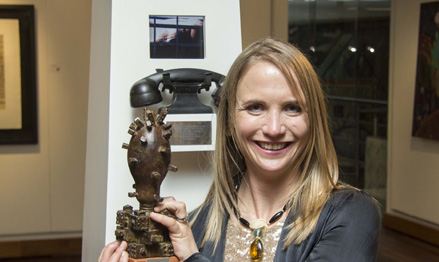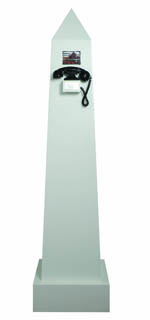Latest News Archive
Please select Category, Year, and then Month to display items
04 April 2024
|
Story Lunga Luthuli
|
Photo SUPPLIED
 Dr Juliet Kamwendo champions gender-inclusive climate action in Africa. Her expertise at the recently held AFR100 workshop highlighted vital steps towards sustainable and equitable development.
Dr Juliet Kamwendo champions gender-inclusive climate action in Africa. Her expertise at the recently held AFR100 workshop highlighted vital steps towards sustainable and equitable development.
Dr Juliet Kamwendo, Lecturer and Programme Director for Gender Studies in the Centre for Gender and Africa Studies at the University of the Free State, is spearheading efforts to integrate gender considerations into Africa's climate restoration agenda. Reflecting on her involvement, Dr Kamwendo stated, "This is particularly crucial, as women make up almost 50% of the population in Africa, and the depletion and degradation of land affect them disproportionately."
She recently served as a gender expert at the AUDA-NEPAD AFR100 workshop in Ouagadougou, Burkina Faso, from 25 to 29 March 2024. This initiative aims to restore forests and degraded land across Africa by 2030, with a focus on gender equality.
The workshop emphasised the integration of gender perspectives into the AFR100 project, acknowledging the disproportionate impact of land degradation on women. Dr Kamwendo's expertise highlighted the need to empower women in climate change interventions, addressing existing gender inequalities exacerbated by environmental degradation.
“Women – who are primarily responsible for household food security and water provision – bear the brunt of environmental degradation, leading to increased workloads, reduced income opportunities, and heightened vulnerability to climate-related disasters. Furthermore, the loss of forest cover and biodiversity further exacerbates the challenges faced by women, particularly in rural areas where they depend heavily on natural resources for their livelihoods,” added Dr Kamwendo.
Her participation highlights academia's crucial role in fostering inclusive and sustainable development, emphasising interdisciplinary collaboration to tackle complex environmental challenges. Through initiatives such as AFR100, stakeholders are working towards a more resilient and gender-responsive future for Africa.
Another L’Atelier feather in the university’s cap
2013-07-24
|
 |
|
Pauline Gutter, winner of this year’s Absa L’Atelier competition
Photo: Supplied
23 July 2013 |
"Dagbreek: Die Dagbreker" - interview with Pauline Gutter (YouTube)
A former Kovsie won the Absa L’Atelier competition – South Africa’s most prestigious art competition – for the second year in a row. 
Pauline Gutter, who completed her BA Fine Arts degree at the UFS in 2003, is the second artist from the Free State to win the competition, which is in its 28th year of existence. In 2012, Elrie Joubert, another former Kovsie student from the Department of Fine Arts, won the competition as well.
As overall winner, Gutter receives a cash prize of R125 000 and six months’ residency in the studio apartment Cité Internationale des Arts in Paris, France.
Her winning entry, Die huweliksaansoek, is an interactive work consisting of a 1.8 m high association-rich obelisk, an engraved plaque, a small TV monitor and a farm-line handset. A video of a bull standing in a crush while semen is being drawn from it, is displayed. The viewer is invited to listen in voyeuristically. The soundtrack for the text is composed of statements and comments made by participants in the programme “Boer soek `n Vrou”. The question highlighted by the work, is, “does a farmer choose his future wife in the same way he breeds his stud animals?”
Pauline says her association with the farm, principled parents and strong family ties serve as inspiration for her work. To express her artistic voice in a contemporary environment is to be a close observer of society, she says. “It’s to ask questions which confront the viewer in a provocative way.”
Her advice to new artists is “hard work, sustainability and commitment. Keep looking until you find the place where you fit in.”